|
2/11/2016 Black History Salute Past and Present Tribute To Ellen Craft, First Sergeant Michael Wiltz and Rev. Karla CooperRead Now
Left to Right: Ellen Craft, First Sargeant Michael Wiltz and Rev. Karla Cooper
Focus On Empowerment can be heard every Thursday at 1pm Eastern.
Log Onto: www.blogtalkradio.com/globalcarole Listen LIVE or Download Anytime At This Blog Post. Each broadcast can be replayed immediately following the show. ======================== Today’s program pays tribute to African Americans who have blazed trails for freedom, in military service and through global ministry outreach. Their selflessness and vision prove once again that Black History IS American History both now and in our past. Ellen Craft launch one of the most outrageous and courageous escapes in history. Very fair skinned, she dressed up like a White man with her slave husband, who acted as her darker skinned valet and traveling companion, to achieve one of the most daring slavery escapes of the 1800s. As First Sergeant for a Intelligence Unit, Michael Wiltz serves as the personal adviser to the Commander on all enlisted-related matters, particularly in areas affecting Soldier training. He travels the world as an Army officer protecting our country from terrorism. And an international field study trip to Chennai, India turned into a God-inspired opportunity for Rev. Karla Cooper during her 2003 graduate years in seminary. That fateful trip has yielded more than 125 Indian churches, now fully a part of the connectional African Methodist Episcopal Church. Craft, Wiltz and Cooper, three role models who have helped make America become the multicultural mosaic that makes us so unique. ==================== READ MORE ABOUT THESE GREAT AMERICANS
0 Comments
From Left To Right: Mary-dith Tuitt, Bishop Richard Allen, Dr. Carter G. Woodson
======================== Focus On Empowerment can be heard every Thursday at 1pm Eastern. Log Onto: www.blogtalkradio.com/globalcarole Listen LIVE or Download Anytime At This Blog Post. Each broadcast can be replayed immediately following the show. ======================== Adversity has always been the resilient spark that ignites the courage and tenacity of Black people. Through the darkest days of American history, the African American spirit always rises from the ashes of hate, discrimination, and most recently rising levels of micro-inequities. The stories of personal achievement overcoming problems show the true merit of Black people and give us the hope and promise to move forward in spite of our difficulties . On today’s show we’ll capture that spirit by telling the stories of three great Americans both past and present. Dr. Carter G. Woodson. Bishop Richard Allen. And Mary Tuitt. Woodson was the founder of Black History Month. Allen was the founder of the AME Church. And Tuitt is a modern day Navy veteran turned public servant and community activist. Three different individuals from three different era. But all representing the best of the best in the Black community. Black History IS American History. And we’ll celebrate our rich traditions on today’s show. ========================= Three Great Stories Richard Allen The United States Post Office unveiled a Forever Commemorative Stamp featuring Bishop Richard Allen at Mother Bethel AME Church on February 2, 2016.
Mary Tuitt Mary-dith E. Tuitt, “Ms. Mary” served fourteen (14) years as a Navy Aviation Machinists Mate, first on active duty and then in the active & inactive Reserves. Her military career included positions in Orlando, Florida, San Diego, California, South Weymouth, Massachusetts,Rota, Spain and other Reserves stations. In 1991 she returned to Boston and became a student of East Coast Aero Technical School. Mary did some military archive research on women of color in the United States Navy and in 2010 she received information that as far as the archival research shows she was the first African American Aviation Machinist Mate (jet mechanic) in the Navy. Click Here To Read More About Mary Tuitt ======================== Dr. Carter G. Woodson Teacher, scholar, publisher and administrator, Carter Godwin Woodson articulated ideas that are antecedents to the discipline of black studies; however, he is best known as the "father of black history." Woodson was born in New Canton, Buckingham County, Virginia, to former slaves Ann Eliza (Riddle) and James Woodson. The oldest of nine children, Woodson labored on his father's farm and in the coal mines of West Virginia. Attending elementary school only a few months per year, Woodson was mostly self-taught. At age nineteen he enrolled in the Frederick Douglass High School in Huntington, West Virginia, where he excelled and completed the four-year curriculum in under two years. Education and Early CareerWoodson attended Berea College in Kentucky for two years, until the institution closed its doors to blacks. Woodson took courses at the University of Chicago, returning to Berea (when blacks were readmitted) to complete his bachelor's degree in literature in 1903. Securing a position as general superintendent of education in Manila, the Philippines, for the United States Bureau of Insular Affairs, Woodson taught English, health, and agriculture. He resigned for health reasons in 1907, and traveled to Asia, North Africa, and Europe. Woodson applied for graduate study at the University of Chicago; however, school officials would not recognize his Berea degree. This situation forced Woodson to earn a bachelor's degree from the University of Chicago, which he received in 1907. His master's thesis, completed in 1908, examined French diplomatic relations with Germany in the eighteenth century. Woodson then enrolled in the doctoral program at Harvard University. After completing coursework, he sought employment in Washington, D.C., so that he might have access to the Library of Congress. While teaching courses in American history, French, Spanish, and English at local Washington, D.C., high schools, Woodson researched and completed his doctoral dissertation on secession, entitled "The Disruption in Virginia," in 1912. At the time, he was the first African American of slave ancestry and the second African American, after W. E.B. Du Bois, to receive a doctorate from Harvard. Woodson's desire to move into the academic world met with frustration. He failed to get his dissertation published and discovered that his professional options were limited. Committed to writing black history, he published another manuscript, The Education of the Negro Prior to 1861(1915). Quickly tiring of academic politics, he sought other avenues to advance his passion for the scientific study of blacks and black history. The Association for the Study of Negro Life and History In 1915 Woodson, with associates Dr. George C. Hall, James E. Stamps, William B. Hartgrave, and Alexander L. Jackson, met at a downtown Chicago YMCA to establish the Association for the Study of Negro Life and History (ASNLH), later changed to the Association for the Study of African-American Life and History. Founded as a historical society devoted to the research of black America, the organization was meant to be ideologically and politically independent. There were three organizational tiers within ASNLH: branch members who paid dues; professional historians who conducted research; and a publication department. In 1916 the association established a quarterly, the Journal of Negro History. Woodson evolved a philosophy about black history: He wanted to free black history from white intellectual bias and present blacks as active participants in history. Additionally, he wanted both black and white people to be exposed to the contributions of blacks. He believed that black history should be a part of the school curriculum. Finally, Woodson saw value in James Robinson's "new" history that asserted that history could serve social change. His passion became obsession as he worked to protect and promote the ASNLH. He never married, and friends and supporters noted that Woodson worked day and night for his association. Financing ASNLH proved difficult as member dues were never sufficient. Woodson raised funds from white corporate philanthropists; however, frequent disagreements and accusations of "radicalism" forced him to compromise his beliefs and declare his loyalty to American capitalism. Struggling to support the organization and himself, Woodson accepted a position as principal at the Armstrong Manual Training School in Washington, D.C., in 1918. From there he moved on to become the dean of the School of Liberal Arts at Howard University. Clashing with Howard president J. Stanley Durkee, Woodson left after two years to become dean at West Virginia Collegiate Institute. After 1922, Woodson was finally able to work full-time for ASNLH, conduct research, and publish prolifically. The spread of Pan-Africanism, Garveyism, and the emergent Renaissance cultural movement were indications of heightened racial consciousness among African Americans. This climate provided support for "race men." Woodson founded Associated Publishers, Incorporated, in 1921 to produce books endorsed by the association. By 1925 the Journal of Negro History had published ten monographs and many articles. Woodson expanded his public presence by writing articles for mass consumption, including many newspaper editorials and regular contributions in the Garvey organization's Negro World. In 1926 Woodson and his association made their indelible imprint on America and the world. He began the celebration of Negro History Week–a special commemoration of the birthdays of Frederick Douglass, Booker T. Washington, and Abraham Lincoln. Additionally it would celebrate the achievements of blacks throughout history. In 1976 this celebration was expanded to the widely celebrated Black History Month. In 1933 Woodson published his most celebrated work, The Mis-Education of the Negro. This penetrating work critiqued the established school curriculum as grounded in racism and Eurocentric thought. Such education, he believed, could only result in the colonial subordination of African people in America. The often quoted passage, "When you control a man's thinking, you do not have to worry about his actions…. He will find his proper place and willstay in it" (p. viii) points to Woodson's assessment of the deleterious effect of existing schooling on the black psyche. Educated blacks would dissociate themselves from the majority of their race, and black people could never achieve unity and racial advancement with this type of education. Concerned that the Journal of Negro History only reached a limited audience, Woodson established the Negro History Bulletin in 1937. Aimed at schools and young people, the Bulletincost very little and used accessible language. Woodson's commitment to make black history accessible to elementary and secondary school students led him to write books for school children, which were often accompanied by study guides, chapter questions, and recommended projects. Throughout the 1940s, the widely respected Woodson worked to popularize black history, maintain the ASNHL, and continue publication efforts. He was honored with the prestigious Spingarn Medal from the National Association for the Advancement of Colored People along with several honorary degrees. The U.S. Postal Service honored him with a memorial stamp in February 1984. Source: http://www.encyclopedia.com/topic/Carter_Godwin_Woodson.aspx There's no better way to celebrate the second day of Black History Month than with a big celebration, compliments of the United States Post Office. Today at noon the shouts of joy were heard all over the connectional African Methodist Episcopal Church (AME) when the US Post Office unveiled the Richard Allen Stamp at Mother Bethel AME Church in Philadelphia. This is the first time that a historically Black denomination has had its founder honored in with a forever commemorative stamp.
Read the information below and learn more about the man, the church and its important contribution to American History. The information below comes from the Connectional AME Church website, www.ame-church.com. =============================== (Philadelphia) AMEs will be present, but so will people from all walks of life, and faith groups. The United States Postal Service has selected Richard Allen for its 2016 Black Heritage stamp. The news of this selection was not just received warmly but with great jubilation as an answer to prayer and the “right” culmination of a global campaign. Oral history has noted that an earlier attempt was made to have a Richard Allen stamp designated near the 100th anniversary of the AME Church. A prototypical photo was drawn and circulated. lt was reportedly stated that while the founding of the AME Church was noteworthy, the firewall between government and religion would make it ill-advisable to honor that request. In about 2002, as Bishop Vinton Randolph Anderson was lamenting about some of the things he has wanted to do prior to retirement in 2004, he mentioned to Richard Allen postal stamp to Sis “Jackie” Dupont-Walker. She learned more about an earlier effort to garner a stamp to honor our founder from Bishop Frederick Hilborn Talbot. By conducting a little research and and connecting with the pastor of Mother Bethel at that time (Rev. Jeffrey Leath), a little inquiry was made and we discovered a ram in the bush. One of the members of Mother Bethel was on the USPS Postal Commission. With her intercession our outreach began. We asked for that honor. It was decided that more about the life and labors of this patriot, advisor to US Presidents, humanitarian, and churchman must be presented as evidence of Allen’s worthiness. In 2004, Bishop Carolyn Tyler Guidry became the chair of the AME Social Action Commission and Sis Jacquelyn Dupont-Walker was elected by the General Board to serve as the Director of the AME Social Action Commission. Another inquiry was made, and the request was put in the pipeline. AMEs became restless so we enlisted support from others who knew the Richard Allen story. What next? The AME Council of Bishops gave its full support to the Social Action Commission to “make it happen”. Well, a petition drive was initiated and with the help of a loyal following of AMEs, members of the AME Zion, Christian Methodist Episcopal, United Methodist, Baptist, Episcopal, Presbyterian, Moravian, Disciples of Christ, United Church of Christ, International Council of Community Churches, Divine 9 Greek organizations, Masons, Elks, media, press, local neighborhood groups, family, and friends, 40,000 signatures were validated among thousands of petition signers. Then we waited and prayed and in the meantime, a new AME Social Action chair assigned Bishop Reginald T. Jackson. We continued to wait and pray for an answer. AMEs in any position of influence or knowledge were contacted, engaged as much as possible, and the standard greeting became – “Have you heard anything yet?” You may remember that the USPS was threatened with its own demise and turned its attention into survival mode for approximately 2 years. Commemorative stamps could not be printed if there was no post office. We joined in that battle, with somewhat of a self-serving interest (smile). Tension built as the anniversary of the Yellow Fever Epidemic came in 2013, and “no word”. Then we turned up the heat. 2016 is the year. Well, as we know too well, that was a revelation and when we learned that Richard Allen had been selected as the 2016 Black Heritage stamp honoree, nothing could have prepared us for the relief, gratitude and sheer joy of finally saying… We heard something! Tomorrow, in addition to the program participants already mentioned, Bishops Carolyn Tyler Guidry and Jeffry N. Leath are participants on the program. Richard Lawrence, a descendentof Richard Allen will be speaking for the family and other family members will be present. Finally, the sojourner of this journey, Sis “Jackie” Dupont-Walker will be shouting “thank yous” with jubilation. Representatives from the AME leadership, ecumenical and interfaith leadership, and many who signed the petitions and lifted this effort in prayer will be present. See you tomorrow in person, online, or via live streaming. Tomorrow stage your own local post office “walk in” and buy stamps. After tomorrow, order on www,USPS.com, schedule a ceremony with your local postal service, and keep the celebration going. We want to have the earliest sell-out of any commemorative stamp in US Postal history – Do we see a second printing before the end of February? “With God, and together, it shall be done”!! ============================= The History of Richard Allen Richard Allen was born a slave in Philadelphia, Pennsylvania on February 14, 1760, and was one of the first African Americans to be emancipated during the Revolutionary era. In 1789, he was ordained the first African American deacon of the Methodist church. Racial inequality forced Richard Allen and other Black Methodists to leave St. George’s Methodist Church (the first and oldest Methodist Church in the United States) to organize the Free African Society whose main goal was to provide aid to newly freed Blacks so they could gather strength and develop leaders in the community. In July of 1794, Allen formed Bethel Methodist Church. In 1816, Rev. Richard Allen and the members of the newly formed Bethel Church won legal recognition as an independent church. In the same year Allen and representatives from four other black Methodist congregations (in Baltimore; Wilmington, Delaware; Salem, New Jersey; and Attleboro, Pennsylvania) met at the Bethel Church to organize a new denomination– the African Methodist Episcopal Church—where he was consecrated as the first Bishop. During his mid-life, Bishop Richard Allen is known for being one of the first African American humanitarians to respond to the Yellow Fever Epidemic by helping the sick in 1793, founding a day school for African American children in 1795, and founding the “Society of Free People of Colour for Promoting the Instruction and School Education of Children of African Descent” in 1804. Over 40,000 people of good will petitioned the United States Postal Service to create a stamp honoring Bishop Richard Allen, a true American whose life and legacy has impacted millions throughout the world. As one of American’s strongest early advocates for racial equality, Bishop Richard Allen’s extraordinary life shows a man deeply devoted to his religion, his community, and his desire to expand the rights of African Americans. Please join in the celebration of the life and works of Richard Allen, as symbolized by a “forever” stamp of the United States Postal Service. |
Details
Categories
All
The Multicultural Symposium Series Webinar Series features current topics designed to enhance personal development both on and off the job. All you need is a computer and a phone to join each webinar. Open to Members of the Multicultural Symposium Series.
Visit www.mssconnect.com for complete information.' Want to learn what it's like to own your own business? Or how to expand your business? Pick up a copy of Carole's book today!
Click On The Cover Below... How can YOU practice diversity and multiculturalism where YOU live?? Read Carole's book and find out how to make it happen!!
Click On The Book Cover Below... AuthorCarole Copeland Thomas is a 27 year speaker, trainer and consultant specializing in global diversity, empowerment, multiculturalism and leadership issues. Archives
August 2023
|
- HOME
- Hire Carole To Grow Your Organization
- VIP Day
-
Topics and Programs
- World Trade Day Presentation
- High Stakes Sexual Harassment
- Diversity & Dollars
- Diversity Best Practices
- Meeting Planners >
- Global Diversity/Multiculturalism >
- Empowerment
- Leadership
- 2019 Diversity Awareness Month
- Multicultural Sympoisum Series
- Multigenerations In The Workplace
- Roosevelt Thomas Tribute
-
Photo Gallery
- Liberty Utilities 2019
- INFLUENCE 19 NSA
- Black NSA Influence 19
-
Faith Based Initiatives
>
- NEAC 2023
- Allen AME Providence Lay Luncheon
- 2019 Photos New England Annual Conference
- 2019 Videos New England Annual Conference
- 2018 Bethel WMS Christmas Service Project
- 2016 New England Annual Conference
- 2014 Bethel AME Boston Ministry Fair
- 2014 New England Annual Conference
- WMS-NGO
- 2012 AME General Conference
- American Girl Dolls On Parade
- NSA New England 2017-2018
- GBCVB Multicultural Meet & Greet
- May Institute-Blue Cross Blue Shield Photo Gallery
- St Paul AME 100th Anniversary
- Joni's 80th Birthday Weekend
- Boston March Against Hate Photos
- Boston March Against Hate Videos
- NSA Influence 17
- Black NSA Influence 17
- NEHRA D&I Gala
- Bethel 2016 Photo Album
- May Institute Race Forum
- Park School PE
- NSA Central Florida
- Dorchester Bay EDC
- 2016 AME General Conference >
- N'Namdi Art Center-Detroit
- Family Gatherings >
- About Carole & Carole's Blog
- Books
- Video, Radio, More...
- Contact Us
- World Travels
- Store/Articles/Events
- Carole's Coaching Academy
- Product
- Retreats
- JUNETEENTH SPECIAL OFFER
- Understanding Black Culture
- Guidebook Special Offer
- Zoom Tutorials 2021
- Indigenous Italian Resources
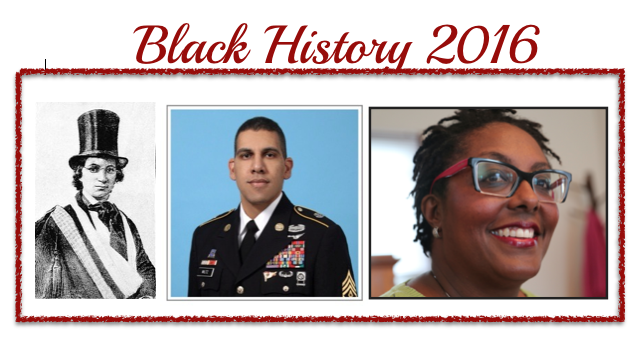
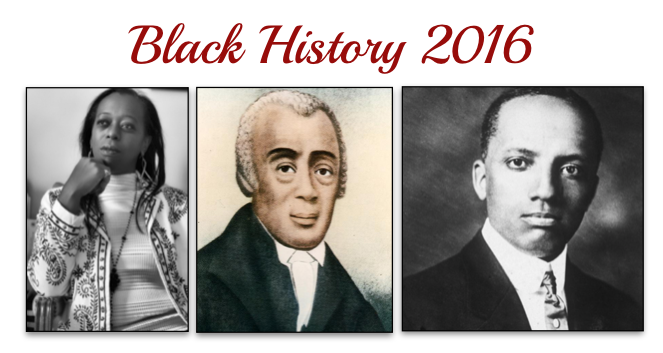
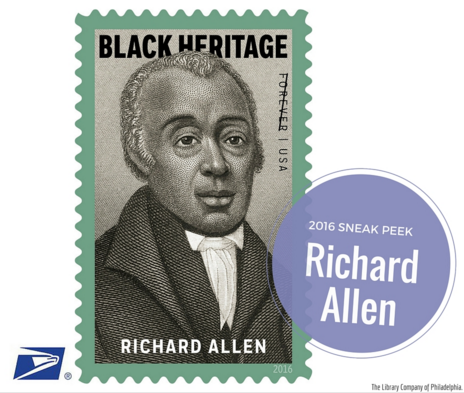
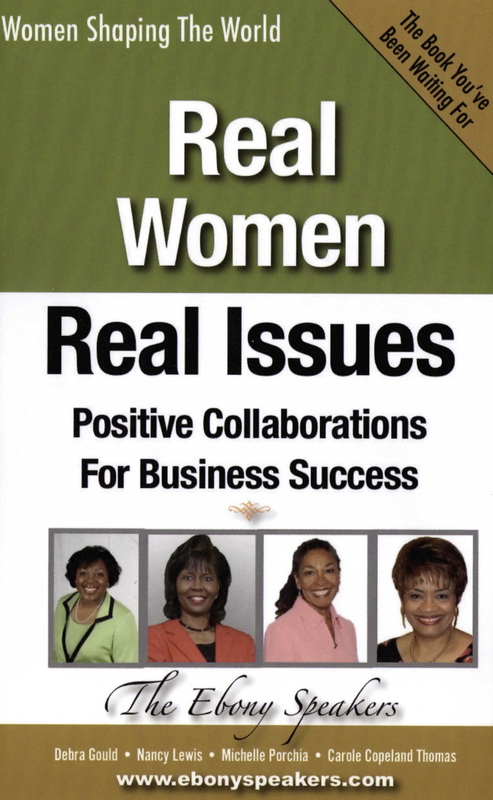
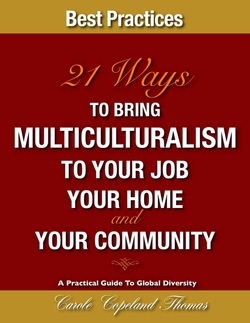
 RSS Feed
RSS Feed


